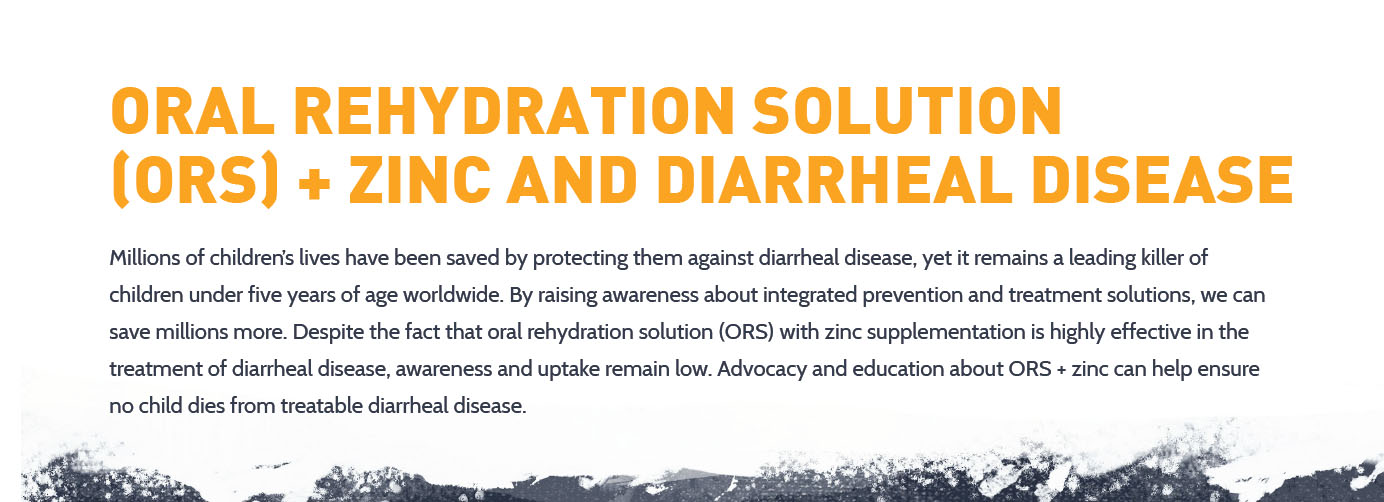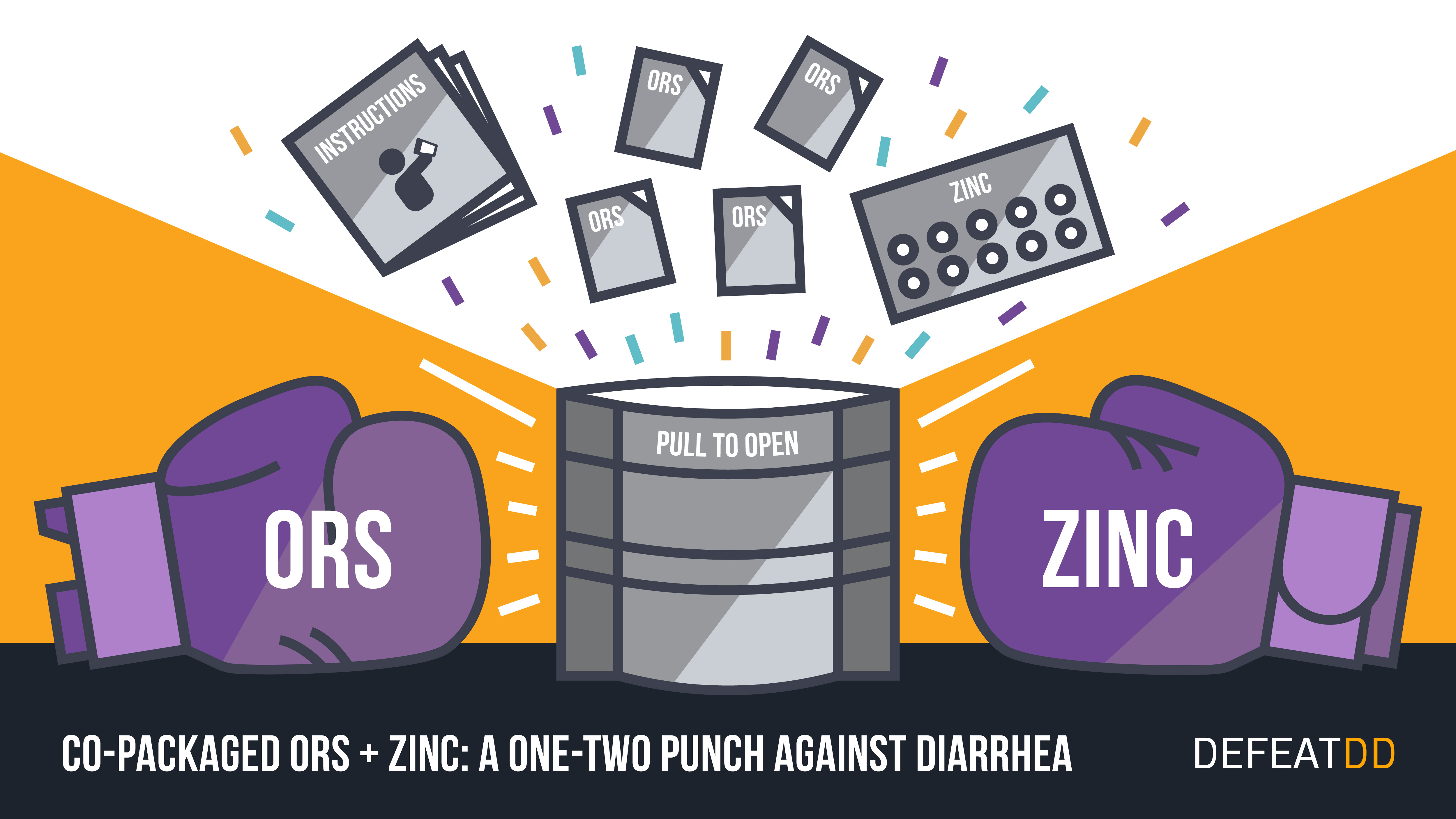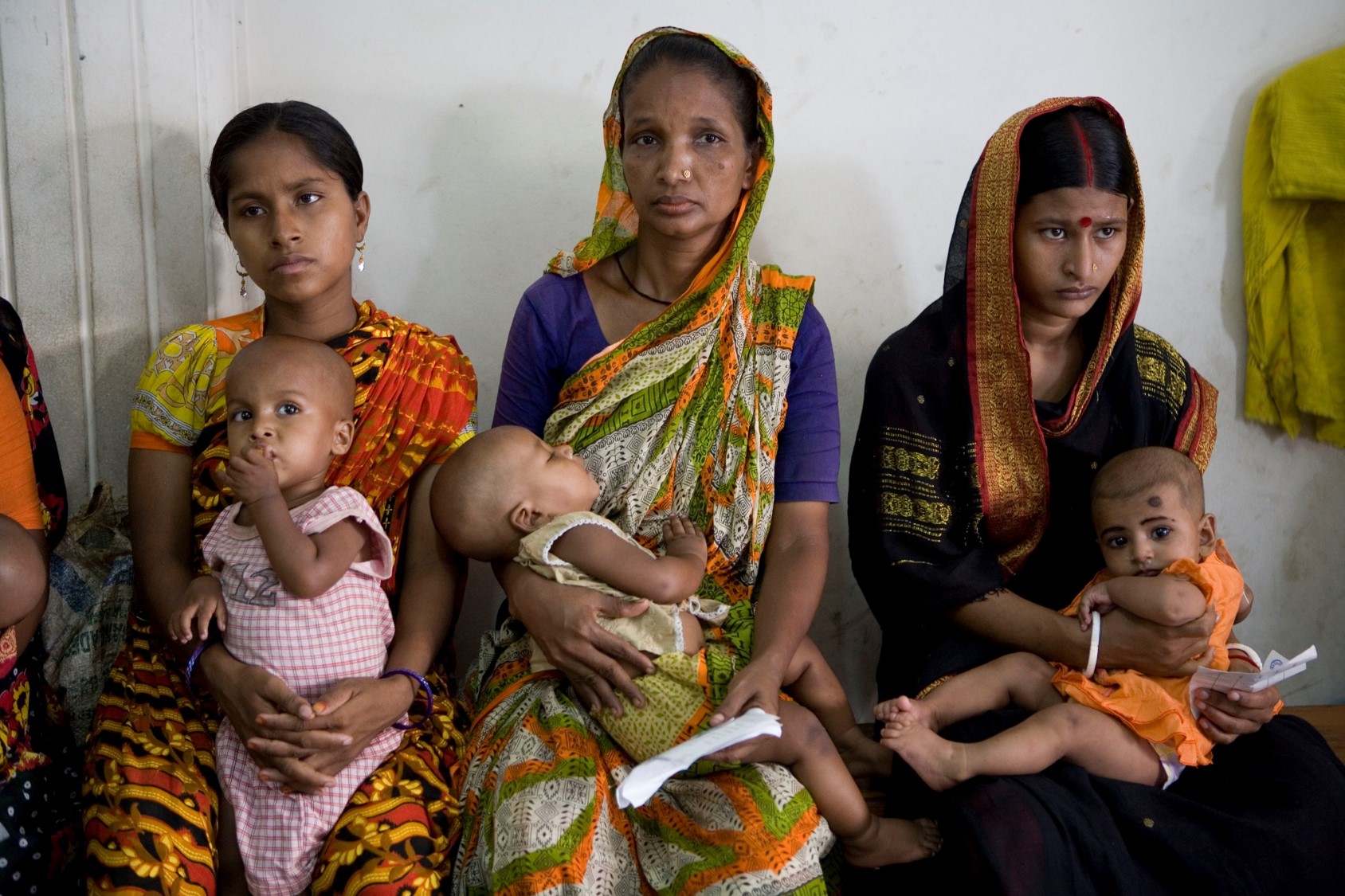Policy spotlight: improved access to ORS and zinc
|
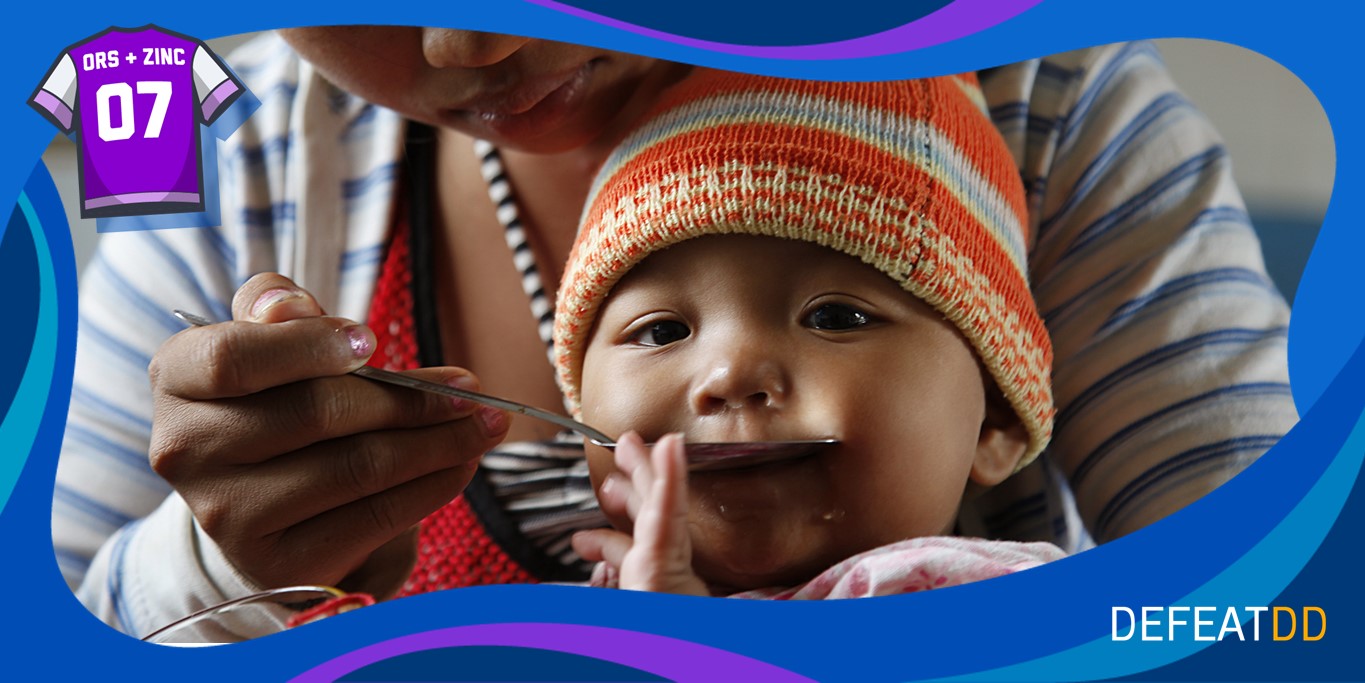
Our motto at DefeatDD is that every child gets diarrhea, but no child should die from it. This aspiration is not a pipe dream. We have prevention and treatment tools and the evidence that proves they can save and improve lives and livelihoods – but only when the most vulnerable children have access to them.
Take oral rehydration solution (ORS) and zinc, the cornerstone treatment for diarrheal disease. The Lancet has called ORS one of the most important medical advances of the twentieth century, and the World Health Organization (WHO) and UNICEF have recommended the use of both ORS and zinc to treat childhood diarrhea since 2004. In a review of 157 studies, ORS reduced deaths from diarrhea by 69%. It has saved millions of lives from life-threatening dehydration caused by diarrhea. Studies also show that zinc supplementation in cases of childhood diarrhea decreases mortality and the duration of diarrhea, and can even prevent future episodes. Combine these tools and we have a powerful weapon indeed. When diarrhea strikes in children, it can kill within hours. When children have access to the tools they need, they can recover just as quickly – though too often, this is not the case.
A scant 7% of children with diarrhea receive both ORS and zinc as recommended. The two products are treated differently by countries’ ministries of health, which creates policy, training, and procurement challenges. The result is that these two essential products are often procured, supplied, and dispensed separately, and while one is in stock, the other may not be available.
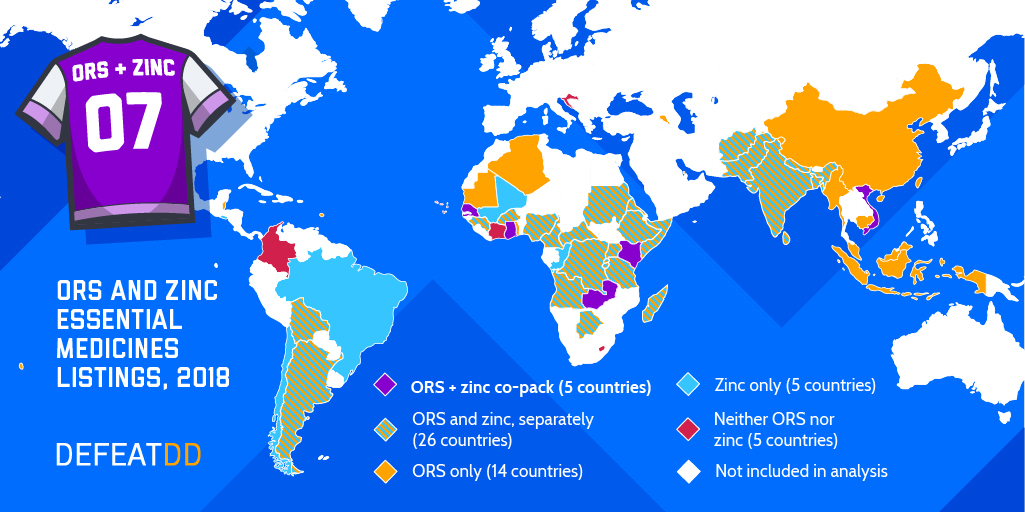
Over the next few months, we’re raising awareness about a practical policy pathway to improve access to ORS and zinc. PATH and other Diarrhea Innovations Group partners have launched a petition to WHO requesting the inclusion of co-packaged ORS and zinc on its essential medicines list for children (EMLc). Policy documents like the EMLc set global norms, which help encourage countries to prioritize the ORS + zinc co-pack in their national health programs and budgets, procurement and supply procedures, diarrhea treatment guidelines, and training of healthcare providers.
A single listing for co-packaged ORS and zinc on the WHO EMLc could create an enabling environment for countries to adopt the co-pack as an essential part of their diarrhea management system. As a result, countries can expect higher uptake and greater access to the globally recommended treatment, which means better survival rates for children. If that weren’t enough, they can also expect to save money. The ORS + zinc co-pack has been shown more affordable than the average price of separate purchases. This is in addition to reduced hospitalizations and use of expensive IV fluids.
Help us ensure that children who battle with dangerous diarrhea have access to the tools they need to recover from it. We invite you to add your voice.









